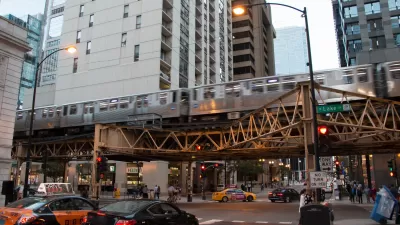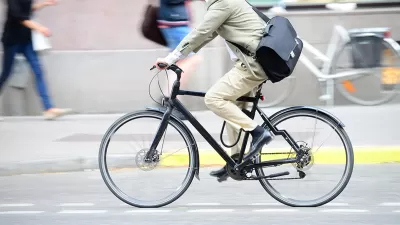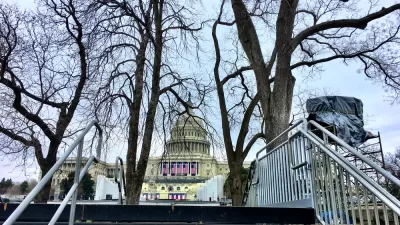The Build Back Better legislation could bring much-needed support to place-based economic development programs.

A brief from the Brookings Institution authored by Mark Muro, Robert Maxim, Anthony F. Pipa, Yang You, and Colleen Dougherty paints an optimistic picture for place-based programs, which could receive increased federal funding thanks to the Build Back Better Act.
Some of the pending place-oriented programs would boost the nation’s regional innovation capacity by investing hundreds of millions of dollars in regional tech hubs, manufacturing institutes, and regional industry clusters. Others would provide block grants so distressed labor markets can expand employment opportunities. And still others would channel multiyear investments into communities to help with energy and industrial transitions, community revitalization, and rural partnerships.
Although these programs haven't received much media attention, the authors note, the more than 30 place-based programs in the bill "represent a genuine breakthrough for the growing recognition that smart investments aimed at strengthening the economies of particular regions or localities can enhance overall welfare and prosperity."
This stands in contrast with prior policy that assumed market forces would eventually lessen the differences between places, even as the economic health of regions and individual towns and neighborhoods grew further apart. Now, research from Brookings and others is showing the potential of place-based economic development that considers local conditions and needs.
While place-based initiatives come with their own set of challenges, the proposed policies in the Build Back Better Act could provide a new framework for approaching economic development and reducing regional inequality.
As of December 15, the Build Back Better Act appears unlikely to be approved by the end of the year, though the White House put out a statement reaffirming support for the legislation from within the Democratic party's more obstinate elements.
FULL STORY: The House’s Build Back Better Act is a milestone for place-based solutions

Alabama: Trump Terminates Settlements for Black Communities Harmed By Raw Sewage
Trump deemed the landmark civil rights agreement “illegal DEI and environmental justice policy.”

Planetizen Federal Action Tracker
A weekly monitor of how Trump’s orders and actions are impacting planners and planning in America.

How Atlanta Built 7,000 Housing Units in 3 Years
The city’s comprehensive, neighborhood-focused housing strategy focuses on identifying properties and land that can be repurposed for housing and encouraging development in underserved neighborhoods.

In Both Crashes and Crime, Public Transportation is Far Safer than Driving
Contrary to popular assumptions, public transportation has far lower crash and crime rates than automobile travel. For safer communities, improve and encourage transit travel.

Report: Zoning Reforms Should Complement Nashville’s Ambitious Transit Plan
Without reform, restrictive zoning codes will limit the impact of the city’s planned transit expansion and could exclude some of the residents who depend on transit the most.

Judge Orders Release of Frozen IRA, IIJA Funding
The decision is a victory for environmental groups who charged that freezing funds for critical infrastructure and disaster response programs caused “real and irreparable harm” to communities.
Urban Design for Planners 1: Software Tools
This six-course series explores essential urban design concepts using open source software and equips planners with the tools they need to participate fully in the urban design process.
Planning for Universal Design
Learn the tools for implementing Universal Design in planning regulations.
Caltrans
Smith Gee Studio
Institute for Housing and Urban Development Studies (IHS)
City of Grandview
Harvard GSD Executive Education
Toledo-Lucas County Plan Commissions
Salt Lake City
NYU Wagner Graduate School of Public Service





























